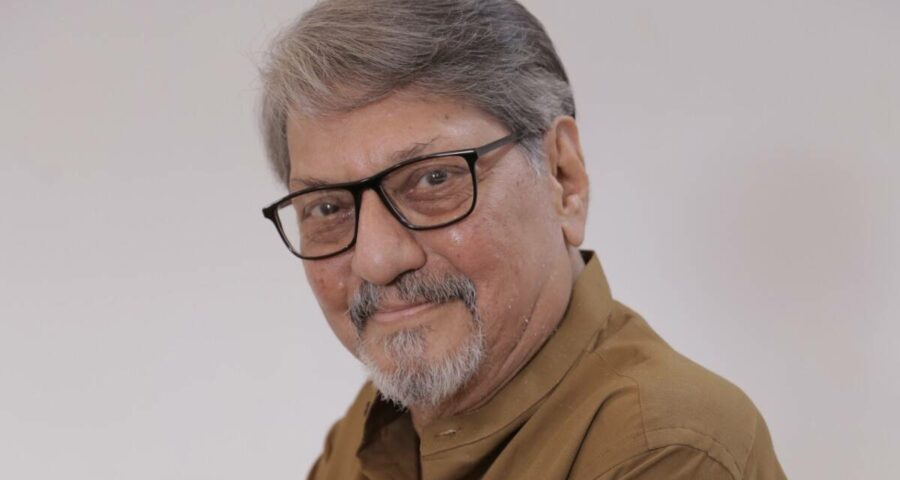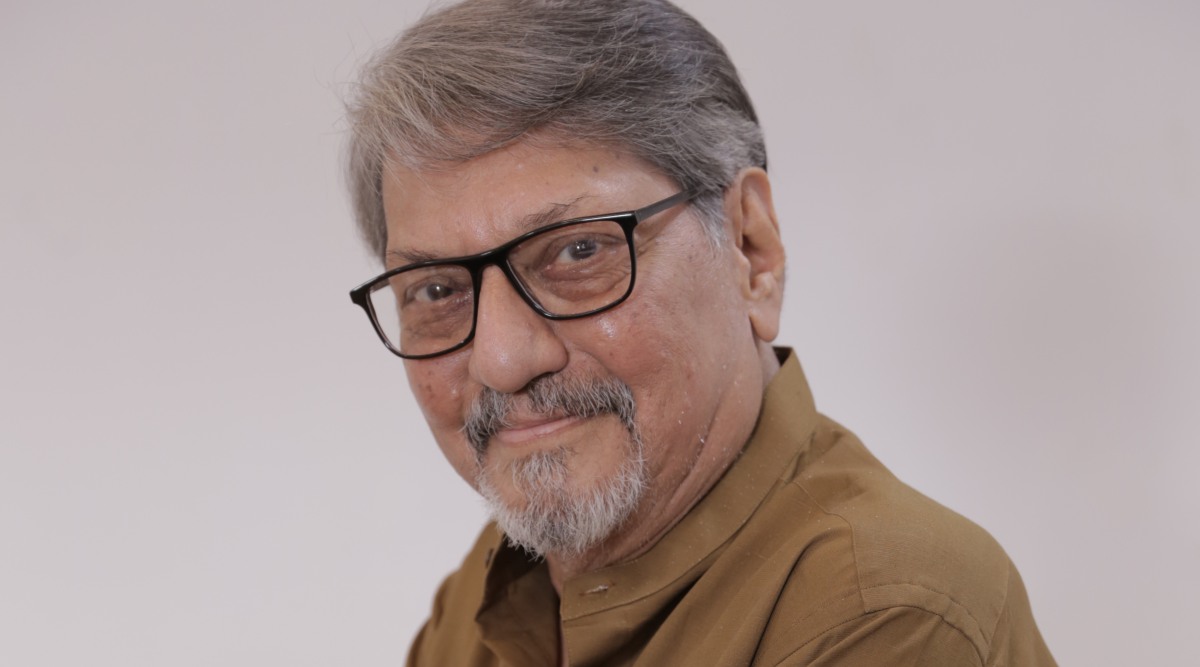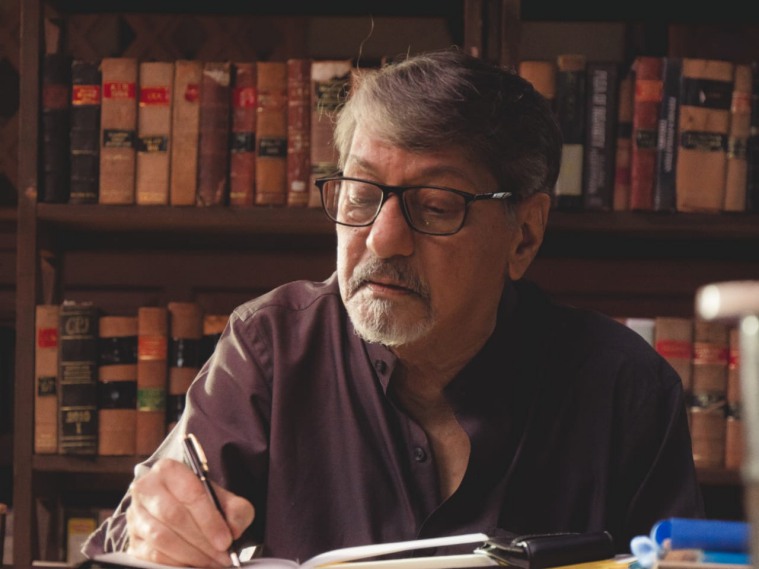Ahead of 200 Halla Ho's release, Amol Palekar talked about the film, his character in it, and if he thinks OTT platforms have led to the end of the era of superstars.
Amol Palekar is an actor who doesn’t give in to commercial compulsions or market forces. He calls himself a “comet” who appears once in a decade, and that is because he is “choosy and lazy”, and he also doesn’t like doing “mono-dimensional characters.” The veteran star, who last graced the screens in 2009 in the Marathi film Samaantar, will next be seen in the Mumbai-set drama 200 Halla Ho, also starring Rinku Rajguru, and Barun Sobti among others. He plays a retired Dalit judge in the movie.
200 Halla Ho is based on the real-life story of 200 Dalit women who attacked a rapist in an open court. It also shows how a criminal accused of rape and molestation tries to get away using the loopholes of the system.
Palekar doesn’t want to call his upcoming ZEE5 film his ‘return’ to the movies. He is just excited about it since for him 200 Halla Ho is a rarity that dares to showcase an unsettling theme which “cinema conveniently and systematically keeps away” from.
https://youtube.com/watch?v=hQSBhEGi-oU%3Fversion%3D3%26%23038%3Brel%3D1%26%23038%3Bshowsearch%3D0%26%23038%3Bshowinfo%3D1%26%23038%3Biv_load_policy%3D1%26%23038%3Bfs%3D1%26%23038%3Bhl%3Den-US%26%23038%3Bautohide%3D2%26%23038%3Bwmode%3Dtransparent
“What attracted me to this script was that it is not a fictional, wishful narration of women’s protest but is based on true events,” Palekar shared, adding, “Media covers atrocities on lower caste men-women as a routine – that news has stopped ruffling us or disturbing our urban sensibilities. Art, especially cinema, also conveniently and systematically keeps these unsettling themes away. Aren’t films expected to be ‘entertaining’ as opposed to distressing the audience? The script offered to me breaks the conspicuous silence revolving around the caste issues. It makes a strong statement that justice has to be fetched through collective efforts. This film will commemorate the protest of those 200 women against patriarchy and caste atrocities.”
Ahead of 200 Halla Ho’s release, we got to interact with the 76-year-old actor about the film, his character in it, and if he thinks OTT platforms have led to the end of the era of superstars.
You play a retired judge in the film. How did you prepare for it? Was it all written for you in the script or did you improvise it?
I play Arjun Dangle, a retired Dalit judge. He heads the fact-finding committee appointed by the National Women’s group as he is known for his integrity and swears by the Constitution. The original script had some rough edges. In fact, I posed two pertinent questions to the makers – were they ready to refine the script? Why did they not opt for an actor from Bahujan samaj? We have great talent who is not given due exposure. I had warned them that casting an outsider for a Dalit’s role would be criticized. But they insisted on having me and were ready to alter certain not-so-progressive scenes. I have not seen the film so cannot opine on how it has been treated. But Saarthak is a sensitive man so I am sure he must have taken due precautions. Once we got clarity on various shades of the character before the shooting, I surrendered to the director. As an old-timer, I do not even look at the footage on the monitor.
The subject of the film is quite sensitive and you are portraying a strong character. But did it ever happen while shooting that you got overwhelmed with the subject of the film?
Caste is the underlying truth of our socio-cultural-political reality, but still, it has remained invisible in our art forms. Not only caste but a revolt against patriarchy is also the theme of this film. 200 women are in the lead role – I am just a supporting cast. Fact that I am a part of a film that will score 100 on 100 in the Bechdel test, is a matter of pride for me.
It’s been over 50 years that you have been a part of Indian cinema. How far do you think the portrayal of women transformed over the years?
Unfortunately, if we look at the majority of our mainstream films, ‘Tum gagan ke Chandramaa ho, Mai dharaa ki dhool hun’ continues to be the typical portrayal of our heroines. She is either a Santoshi Maa or a Mother India. She is a commercial item to be added through her dance number. Female centric films were a rarity but with the emergence of OTT platforms, wonderful female characters are scripted. This is a commendable change. I, as a director, have always tried to project the inner strength of women. Even in ‘Paheli’, Lachchi owns up to her decision to be with a man who loved her knowing that he was not her husband. People fighting the proliferated antagonism despite their marginalisation inspire me. Their struggle comes alive through the characters in my films.
This is the first time that your film is having a digital release. Do you think the advent of OTT platforms has led to the end of the era of superstars and now it’s the content that takes centre stage?
Certainly! The ‘stars’ arriving late on the film sets had become a norm during the 80s. Vying with each other to prove who is a ‘super-star’ in such a manner was a disturbing trend that had crept in; dialogues being altered, scenes being re-written on the spot was not a novelty. I always abhorred those practices. Due to the OTT platforms, so many new, brilliant actors are seen through various web content. It’s good that the monopoly of stars has diminished. No producer would have backed ‘200 Halla Ho’ if it was to be theatrically released. I congratulate Zee for handling this subject.
Why don’t we see you much in action now? What is keeping you busy?
Honestly, I am very lazy and very choosy. Both are not virtues if you wish to be in the limelight. I am not an attention seeker. Nor do I wish to keep on earning money years after years. When I felt challenged with the idea of the 90-minute long solo performance, I did KUSUR when I completed 75 years. I performed all over India. It was my attempt to show a glimpse of my acting skills as a theater actor to the younger generations who have not known any of my contributions to theater. Unless I feel compelled, it’s hard for me to get motivated to act.
When can we see you taking the director’s chair once again?
My plate is full. There are a few scripts ready, but again who will back off-the-hook subjects? Besides, the OTT platforms seem to be intervening in the creative process, which I shall certainly not accept. So let’s see…
Source: Read Full Article



